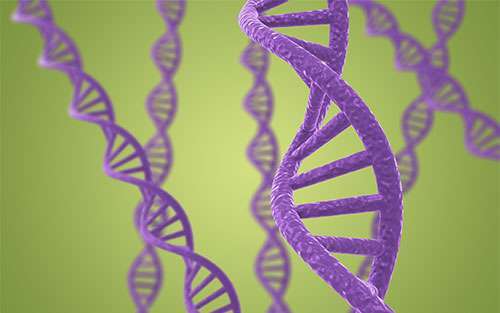
Find out which genetic and molecular tests can provide important information for you or your loved one.
Editor’s note, March 2, 2020: Results published in Lancet Oncology from the Pancreatic Cancer Action Network’s (PanCAN) Know Your Tumor® precision medicine service show that pancreatic cancer patients who are able to go on therapies that match their tumor biology live an average of one year longer compared to patients who don’t. PanCAN strongly recommends that all pancreatic cancer patients have testing of their tumor biology and genetic makeup to help them and their healthcare team make informed treatment decisions. Learn more about these types of testing below.
Knowledge is power, but keeping up with all the different types of genetic and molecular tests and profiling can be overwhelming for even the savviest pancreatic cancer patients and their caregivers.
The two main types of testing available to pancreatic cancer patients are:
- Germline (genetic) testing, which analyzes a patient’s saliva or blood for genetic changes they were born with.
- Tumor molecular profiling, which evaluates a small piece of tumor tissue, often taken during a biopsy, for mutations or other alterations that occurred in the patient’s pancreatic cancer cells.
The Pancreatic Cancer Action Network (PanCAN) strongly recommends that all pancreatic cancer patients have both types of tests to help them and their healthcare team make informed treatment decisions.
Genetic Testing
Most cases of cancer arise due to mutations, or mistakes, in genes, which are segments of DNA.
For pancreatic cancer, around 10% of cases are thought to be hereditary, which means a risk for the disease runs in the family. When a mutation occurs in a person’s gamete (egg or sperm), it is referred to as a germline mutation. Germline mutations can be passed down from parents to children and occur in every cell of an affected person’s body.
Germline mutations can be detected through genetic testing. Because the alterations to a person’s DNA are consistent throughout their whole body, this analysis is typically done on a sample of blood or saliva.
PanCAN, along with major pancreatic cancer guidelines, recommends all patients get genetic testing, whether or not they have family history of pancreatic or other types of cancer. This information can help guide treatment decisions as well as inform patients whether their family members may be at risk for pancreatic cancer.
Tumor Molecular Profiling
Another type of mutation, called a somatic mutation, occurs after somebody is born and can happen in any cell of the body, except for gametes (egg or sperm). Somatic mutations can be caused by carcinogens like cigarette smoke or UV rays from the sun, or can just occur randomly, and are not passed down through a family.
Somatic mutations that contribute to a patient’s pancreatic cancer can be identified through tumor molecular profiling of a piece of tissue obtained from their tumor. Molecular profiling allows doctors to pinpoint the exact biological changes that occurred to make a healthy cell in the pancreas turn cancerous.
This is also sometimes called tumor testing, genomic testing or biomarker testing.
Through a precision medicine approach, information from both tests can help guide treatment decisions.
PanCAN’s Know Your Tumor® precision medicine service provides patients and their healthcare teams with information about both germline and somatic mutations.
Some cancer drugs, like the immunotherapy Keytruda®, are approved to treat only patients with changes in their DNA that will show up in a tumor molecular profiling report. Others, like the targeted therapy Lynparza®, treat pancreatic cancer patients who were born with BRCA mutations, which increases the likelihood of patients’ tumors responding to this drug.
“Since every pancreatic patient and their tumor is different, we at PanCAN strongly recommend genetic testing and molecular profiling of your tumor to help determine the best treatment options,” said Lynn Matrisian, PhD, MBA, chief science officer at PanCAN.
“We’ve had patients go through our Know Your Tumor service and discover extremely rare – but very actionable – alterations that they never would have known about otherwise. And those patients are still doing very well because of treatments targeted to their alterations.”





